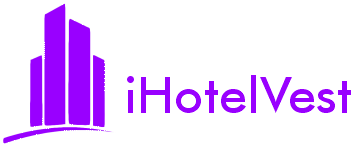The hotel industry has traditionally relied on methods like bank loans, private equity, and institutional investors to finance new projects. However, in recent years, crowdfunding has emerged as an innovative alternative, allowing developers to raise funds by tapping into a large pool of small investors. If you’re considering investing in hotels or developing a new project, understanding the pros and cons of crowdfunding versus traditional financing is crucial. Here’s a breakdown of how these two approaches compare: 
Pros of Crowdfunding
Access to a Broad Investor Base
Wider Reach: Crowdfunding platforms enable developers to reach a large and diverse group of potential investors, including individuals who might not have the capital to participate in traditional financing deals.
Community Engagement: Crowdfunding can create a community of investors who are personally invested in the success of the project, which can also lead to word-of-mouth marketing and increased customer loyalty.
Flexible Investment Amounts
Low Entry Barriers: Crowdfunding allows people to invest small amounts, making hotel investment more accessible to everyday investors. This democratizes the investment process, opening it up to those who might not typically have access to real estate opportunities.
Speed and Simplicity
Faster Funding: Crowdfunding campaigns can be launched quickly, and if the project resonates with the public, funds can be raised rapidly. This is often faster than securing traditional loans or investments.
Simplified Process: The process of raising funds via crowdfunding can be less bureaucratic and more straightforward than dealing with banks or large institutional investors.
Marketing and Validation
Built-in Marketing: A successful crowdfunding campaign not only raises funds but also generates buzz around the hotel project. The process itself can serve as a marketing tool, helping to build a customer base before the hotel even opens.
Proof of Concept: If a project successfully raises funds through crowdfunding, it can be seen as a validation of the concept, as it shows that there is public interest and demand.
Cons of Crowdfunding
Uncertain Funding Outcome
Risk of Failure: Unlike traditional financing, where funds are typically secured once the loan or investment is approved, crowdfunding carries the risk that the campaign may not reach its funding goal. If the target isn’t met, the project may not proceed.
Dilution of Ownership
Multiple Stakeholders: Crowdfunding involves a large number of small investors, which can lead to a dilution of ownership. Managing a diverse group of investors can also be more complex compared to dealing with a single bank or a few large investors.
High Marketing Effort
Campaign Management: A successful crowdfunding campaign requires significant effort in marketing, promotion, and communication. This can be time-consuming and may require additional resources to manage effectively.
Regulatory Challenges
Legal and Compliance Issues: Crowdfunding is subject to various regulations, which can vary by country and type of investment. Ensuring compliance can be complicated and may require legal assistance, adding to the overall cost and complexity of the campaign.
Pros of Traditional Financing
Reliability and Security
Established Process: Traditional financing methods like bank loans and institutional investments are well-established and have clear, structured processes. This can provide a sense of security and predictability for developers.
Guaranteed Funding: Once approved, traditional loans or investments generally guarantee that the necessary funds will be available, assuming the developer meets the agreed-upon terms.
Large Capital Availability
Significant Funds: Banks and institutional investors can provide substantial amounts of capital, often exceeding what could be raised through crowdfunding. This makes traditional financing more suitable for large-scale hotel projects.
Lower Investor Involvement
Streamlined Management: Traditional financing typically involves fewer parties, making it easier to manage relationships and make decisions. Developers retain more control over the project without needing to engage with a large number of small investors.
Long-Term Relationships
Lender Relationships: Working with banks and institutional investors can establish long-term relationships that may be beneficial for future projects. This can lead to better terms or faster approval processes for subsequent ventures.
Cons of Traditional Financing
High Barriers to Entry
Strict Requirements: Banks and institutional investors often have stringent requirements, including extensive due diligence, credit checks, and a proven track record. This can make it difficult for new or smaller developers to secure funding.
Limited Flexibility
Rigid Terms: Traditional loans come with fixed repayment schedules, interest rates, and covenants that may not offer the flexibility that some developers need. Deviating from these terms can lead to penalties or the loan being called in.
Slow Approval Process
Time-Consuming: The process of securing traditional financing can be lengthy, involving multiple rounds of approvals, appraisals, and negotiations. This can delay the start of a project.
Higher Costs
Interest and Fees: Traditional loans often come with significant interest rates and fees, which can increase the overall cost of the project. These costs must be factored into the project’s financial planning.
Which is Right for You?
Choosing between crowdfunding and traditional financing depends on your specific needs and circumstances. If you’re a developer looking for flexibility, community engagement, and a quicker route to market, crowdfunding may be the right choice. However, if you need large amounts of capital, prefer the security of established processes, and can meet the stringent requirements, traditional financing might be more suitable.
Ultimately, many developers and investors find value in combining both methods, using crowdfunding to supplement traditional financing or to fund smaller, innovative projects that might not fit the criteria of conventional lenders.
By understanding the pros and cons of each approach, you can make an informed decision that aligns with your project’s goals and your personal investment strategy. Whether you choose crowdfunding, traditional financing, or a blend of both, the key is to carefully assess your options and plan accordingly.

Comments